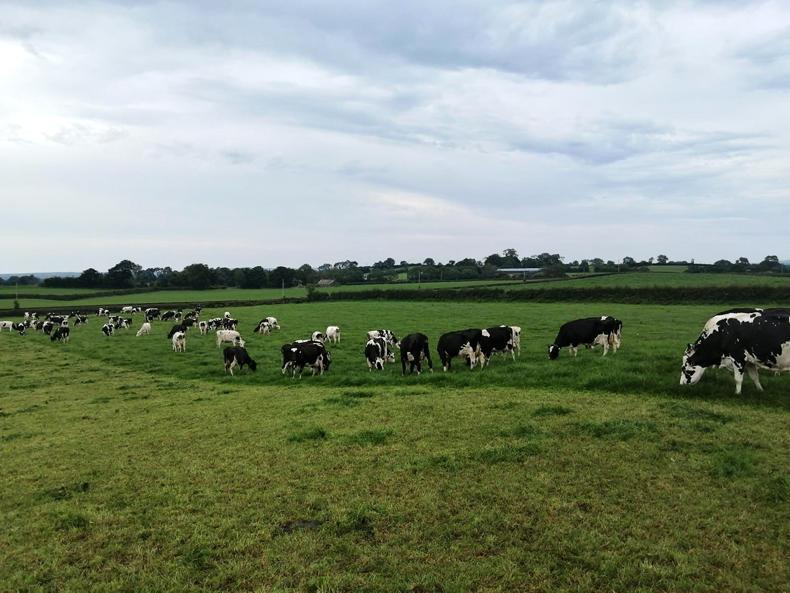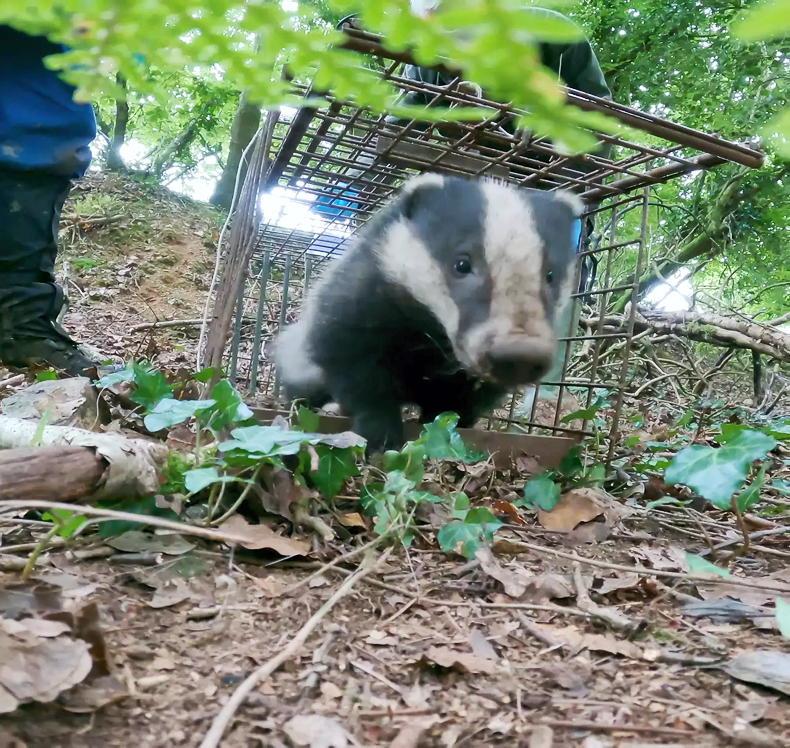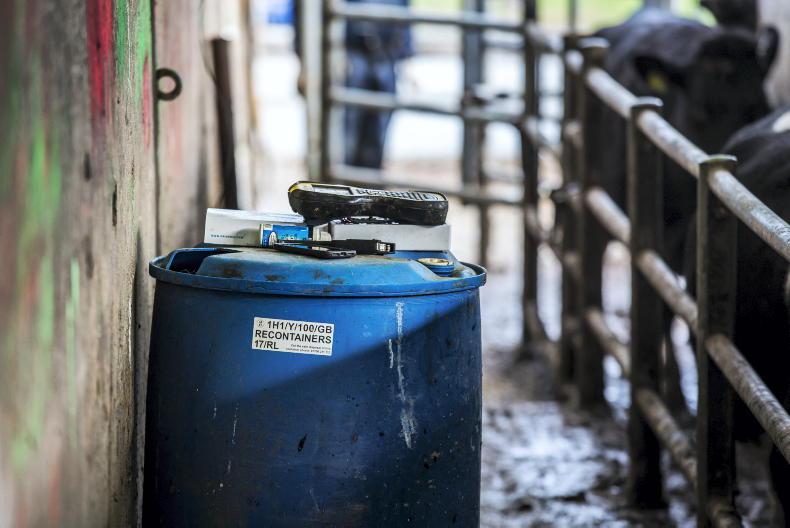The thought of an upcoming TB test can cast a shadow over a farmer for weeks, and the prospect of what a reactor could mean for their business can severely affect an individual’s mental health.
Every time we have had to send a reactor away, I have felt that we have failed our stock, even though we did all we legally could to protect them.
If an animal rights activist thinks that we as livestock farmers don’t care for our animals, I would suggest they speak to a farmer as they load reactors onto a lorry to go to the abattoir and see the emotions that they experience.
It is the first time since 2012 that we have had three consecutive clear tests
I am sure that I am not alone when I say that I have experienced tears in my eyes as I loaded a favourite heifer.
Over the last 10 years, we have lost 51 cattle to this cruel, persistent disease. Therefore, it was a great relief that a fortnight ago, we completed our four-month test without a reactor.
It is the first time since 2012 that we have had three consecutive clear tests.
As of October 2019 (the most recent month that DAERA statistics are available), new TB infections had been found in 7.98% of Northern Irish herds, and 13,165 animals had been removed as reactors at a test in the previous 12 months.
Any politician or lobby group that seeks to stand in the way of a targeted cull must be aware of the heartache, stress and trauma that will continue to affect so many farming families if TB is not halted
These figures will represent the erasing of decades of dedication, work and genetic progress. They demonstrate how desperately we all need effective measures to control this disease.
It is for this reason that I am delighted that Minister Poots looks set to bring forward a strategy to eradicate bovine TB this autumn, including a cull of badgers in hotspot areas.
In Gloucestershire, such a strategy saw TB incidence fall by 66% in four years. Any politician or lobby group that seeks to stand in the way of a targeted cull must be aware of the heartache, stress and trauma that will continue to affect so many farming families if TB is not halted.
Surely, no one who cares for badgers would want a significant proportion of the population to suffer from this debilitating infection.
Drying off
While I might adore my cows, I do have to admit that I enjoy being able to start drying them off at this time of the year – it makes milking considerably quicker.
Three weeks ago, we dried off our first batch for the 2020-21 calving season. Our dry cow therapy consists of Cepravin dry cow tubes and Orbseal sealant tubes.
Each cow also receives two Cosecure boluses to supplement them with cobalt, selenium, and copper, and is drenched with Endofluke flukicide. They also receive a generous application of Stockholm Tar to their teats (which is reapplied every seven to 10 days) to control flies, along with Spot On (which we apply on a herd basis every four to six weeks, depending on conditions).
I have also incorporated hoof trimming into my drying-off routine, to ensure every cow has their feet examined at least once a year, to deal with any potential issues.
Podcasts
Repetitive, tedious tasks can often be a fact of life in agriculture (power-harrowing and rolling come to mind). So, in an effort to combat buckraking boredom prior to our second cut, I downloaded a range of agricultural podcasts onto my mobile and then played them though the telehandler radio via bluetooth.
The sheer range of topics available ensured that my time on the clamp was a much more pleasant experience.
No matter what your area of agricultural interest may be, there is a podcast for you
I also found them to be extremely informative and they helped me develop new ideas that we can implement on our own farm.
No matter what your area of agricultural interest may be, there is a podcast for you. In particular, I found Teagasc’s The Dairy Edge to be very useful for relevant, practical advice for dairying, and that AgriSearch and AFBI’s Grass Check podcast can provide an insight into how others cope with grassland management in our variable climate.
I would also highly recommend the Irish Farmers Journal’s podcast (I am not just saying that to keep the editor happy) – it successfully covers the key issues that affect each sector every week, as well as being a useful source of advice.
But of course, it should in no way be seen as replacement for buying your paper each Thursday!
Read more
Farmer Writes: the good and bad of using social media
New NI TB strategy set for autumn
The thought of an upcoming TB test can cast a shadow over a farmer for weeks, and the prospect of what a reactor could mean for their business can severely affect an individual’s mental health.
Every time we have had to send a reactor away, I have felt that we have failed our stock, even though we did all we legally could to protect them.
If an animal rights activist thinks that we as livestock farmers don’t care for our animals, I would suggest they speak to a farmer as they load reactors onto a lorry to go to the abattoir and see the emotions that they experience.
It is the first time since 2012 that we have had three consecutive clear tests
I am sure that I am not alone when I say that I have experienced tears in my eyes as I loaded a favourite heifer.
Over the last 10 years, we have lost 51 cattle to this cruel, persistent disease. Therefore, it was a great relief that a fortnight ago, we completed our four-month test without a reactor.
It is the first time since 2012 that we have had three consecutive clear tests.
As of October 2019 (the most recent month that DAERA statistics are available), new TB infections had been found in 7.98% of Northern Irish herds, and 13,165 animals had been removed as reactors at a test in the previous 12 months.
Any politician or lobby group that seeks to stand in the way of a targeted cull must be aware of the heartache, stress and trauma that will continue to affect so many farming families if TB is not halted
These figures will represent the erasing of decades of dedication, work and genetic progress. They demonstrate how desperately we all need effective measures to control this disease.
It is for this reason that I am delighted that Minister Poots looks set to bring forward a strategy to eradicate bovine TB this autumn, including a cull of badgers in hotspot areas.
In Gloucestershire, such a strategy saw TB incidence fall by 66% in four years. Any politician or lobby group that seeks to stand in the way of a targeted cull must be aware of the heartache, stress and trauma that will continue to affect so many farming families if TB is not halted.
Surely, no one who cares for badgers would want a significant proportion of the population to suffer from this debilitating infection.
Drying off
While I might adore my cows, I do have to admit that I enjoy being able to start drying them off at this time of the year – it makes milking considerably quicker.
Three weeks ago, we dried off our first batch for the 2020-21 calving season. Our dry cow therapy consists of Cepravin dry cow tubes and Orbseal sealant tubes.
Each cow also receives two Cosecure boluses to supplement them with cobalt, selenium, and copper, and is drenched with Endofluke flukicide. They also receive a generous application of Stockholm Tar to their teats (which is reapplied every seven to 10 days) to control flies, along with Spot On (which we apply on a herd basis every four to six weeks, depending on conditions).
I have also incorporated hoof trimming into my drying-off routine, to ensure every cow has their feet examined at least once a year, to deal with any potential issues.
Podcasts
Repetitive, tedious tasks can often be a fact of life in agriculture (power-harrowing and rolling come to mind). So, in an effort to combat buckraking boredom prior to our second cut, I downloaded a range of agricultural podcasts onto my mobile and then played them though the telehandler radio via bluetooth.
The sheer range of topics available ensured that my time on the clamp was a much more pleasant experience.
No matter what your area of agricultural interest may be, there is a podcast for you
I also found them to be extremely informative and they helped me develop new ideas that we can implement on our own farm.
No matter what your area of agricultural interest may be, there is a podcast for you. In particular, I found Teagasc’s The Dairy Edge to be very useful for relevant, practical advice for dairying, and that AgriSearch and AFBI’s Grass Check podcast can provide an insight into how others cope with grassland management in our variable climate.
I would also highly recommend the Irish Farmers Journal’s podcast (I am not just saying that to keep the editor happy) – it successfully covers the key issues that affect each sector every week, as well as being a useful source of advice.
But of course, it should in no way be seen as replacement for buying your paper each Thursday!
Read more
Farmer Writes: the good and bad of using social media
New NI TB strategy set for autumn









SHARING OPTIONS